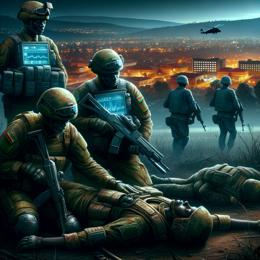Image: AI generated for illustration purposes
Russia Supreme Court Declares LGBTQ Movement 'Extremist' in Severe Crackdown on Rights
In a landmark judgment that sends shockwaves through human rights communities, Russia's Supreme Court has cast a blanket ban on the 'international LGBTQ movement,' equating it with extremism and outlawing its operations within the nation. This development is not merely a policy shift but a severe clampdown on gay, lesbian, and transgender individuals' rights, escalating the decade-long oppressive stance of the Russian government under President Vladimir Putin's administration.
On a fateful Thursday, the court concluded that the international LGBTQ movement, alongside its affiliate entities, engaged in activities that warranted the "extremist" tag, thereby sanctioning a prohibition on its existence in Russia. Significantly, this decree articulates the most aggressive step in the ongoing campaign to undermine LGBTQ liberties that has intensified since Putin has championed 'traditional family values' as a key tenet of his rule.
The specificity of the ruling's implications remains unclear, notably concerning the impact on individual activists or associated organizations. Remarkably, the hearing was conducted in secrecy, absent any form of defense, and the media were only permitted entry to document the final pronouncement.
In lieu of this decision, the Kremlin, via Dmitry Peskov, Putin's spokesman, expressed its detachment, stating its lack of commentary or cognizance vis-a-vis the impending verdict. Notwithstanding the Kremlin's stance, the ramifications of this judicial decree have promulgated fear among the gay and transgender populace, who envisage a subsequent wave of detentions and legal proceedings against them.
Responding to the verdict, social media platforms bore witness to the distress and resilience of advocacy groups such as the Feminist Anti-War Resistance, which conveyed the message of survival and continuity in these trying times. Furthermore, NGO "Center T," dedicated to transgender rights, announced its intentions to issue safety advisories for LGBTQ community members.
Yan Dvorkin, the fled director of "Center T", deemed the legal development a "new low point of insanity," underscoring the distress that permeates the LGBTQ collective in Russia. Meanwhile, international human rights body Amnesty International condemned the verdict as "shameful and absurd," pinpointing a potential comprehensive ban on LGBTQ groupings that infringe on fundamental freedoms ranging from association to peaceful assembly.
The intensification of Moscow's suppression of liberal groups coincides with the inception of its military aggression in Ukraine, propelling the Kremlin to fortify its narrative of safeguarding "traditional values" against alleged corruption from Western liberalism.
Amid these troubling trends, Dvorkin has opined that the scapegoating of LGBTQ individuals is a diversionary tactic by Russian authorities to channel public dissatisfaction stemming from the ongoing war into animosity toward the community. Last July, the Russian government escalated its anti-LGBTQ measures by outlawing gender reassignment surgeries, a step purportedly aimed at countering "Western anti-family ideologies," as articulated by lawmaker Pyotr Tolstoy.
The subsequent November saw a further legislative offensive with the passage of a bill criminalizing all LGBTQ "propaganda," portending grave implications for cultural productions such as book publishing and film distribution.
In an international context, the organization Rainbow Europe, which assesses European countries' tolerability toward LGBTQ individuals, positioned Russia alarmingly as the third-worst on the continent.










